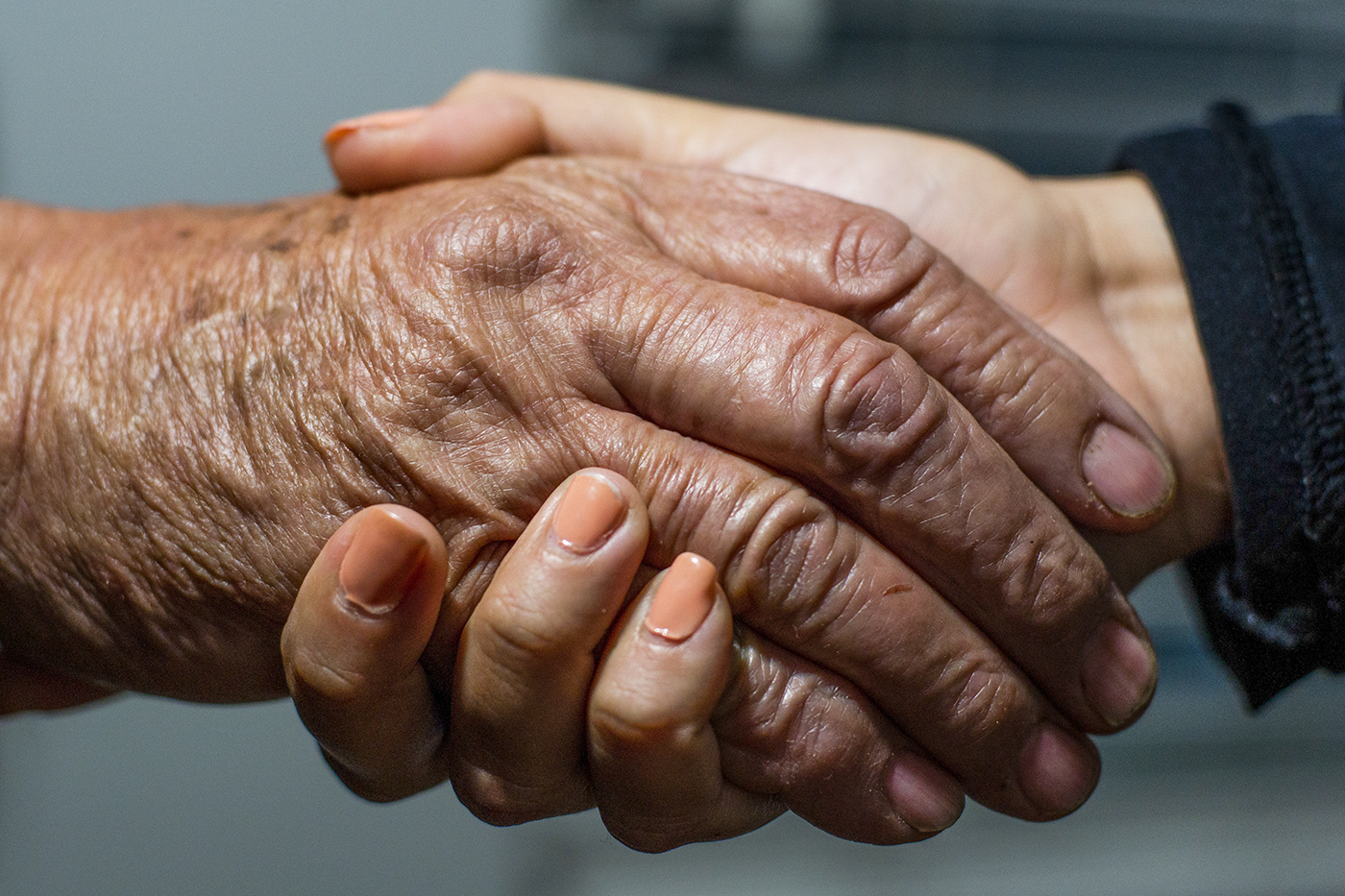The Quad: Students and elderly alike feel impacts of isolation from COVID-19 pandemic

Similar to many college students, members of older generations are also having to adjust to life in quarantine and feelings of seclusion. (Antonio Martinez/Daily Bruin)
By Rashell Khalfin
March 4, 2021 9:17 p.m.
We often focus on the loss of college experiences during this pandemic. But what has the loss of human connection done to our most vulnerable: the elderly?
According to the Journal of the American Medical Association, the COVID-19 pandemic has disproportionately affected older adults in adverse ways. In addition to the pandemic’s high risk on the physical health of older adults, many in this population are also facing other changes such as adjusting to new technologies and the mental health impacts of isolation.
Finding safe ways to stay connected with older generations can be a mutually beneficial act for Bruins and elders stuck at home alike.
According to a University of Michigan poll on healthy aging, 56% of older adults said they felt very secluded and alone in 2020. That is more than twice the amount of those who reported they felt lonely in a 2018 healthy aging poll.
First-year economics student Aaron Movshovich said he tries his best to help his grandfather feel less isolated by calling him every day, adding that he feels relieved to check up on him and make sure he is staying healthy.
“My grandpa tells me that he misses real life and interactions with me and my family, and his friends … I wish I lived closer to him so I could see him more often,” Movshovich said.
Movschovich added that he has even turned to creative ways to stay in touch with his grandfather, such as writing letters and postcards.
“Overall, we try to make sure he knows he can talk to us at any time so he doesn’t feel lonely, so we try to talk to him as much as possible,” Movschovich said.
Aaron Movschovich’s grandfather, Michael Movshovich, said he misses his friends and routine interactions because he lives by himself in an apartment complex.
“I want to have personal interactions like young adults are having but I can’t have that because I have to stay at home. Reading Aaron’s letters and talking to him on FaceTime truly makes my day,” Michael Movshovich said.
Similar to Michael Movshovich, Farehe Hariri, grandmother to third-year sociology student Ariel Naghi, also lives in an apartment by herself. In an interview translated from Farsi, Hariri said she feels grateful for her grandson’s efforts to stay in touch during the pandemic.
“I feel upset about the virus,” Hariri said. “I know I have to follow social distancing guidelines and wear masks but I just feel more lonely since COVID-19 hit. I feel much better when Ariel visits me.”
Hariri said she tries to talk to loved ones as much as possible to keep positive during this time.
“It’s very difficult to feel happy because every time you turn on the news there is something serious to worry about. As an older person highly at risk and lonely, these problems affect your mental health,” Hariri said.
According to a study published by Sage Journals, isolation and loneliness can cause harmful routines to not only grow, but persist. Senior citizens who are in quarantine with no one to talk to are more likely to smoke or drink in excess. There is also a far less likely chance that they will take care of their physical health — therefore, having social interactions can encourage the elderly to live in good physical and mental condition.
In an interview translated from Russian, nurse practitioner Zoya Shapiro said wearing masks is an effective and safe way to be able to still interact with elders.
“If you want to help out with elders or grandparents, the best way is to stay isolated so they do not get infected. Encourage your elders to consistently take their vitamins and wear a mask,” Shapiro said.
Shapiro also said participating in socially distanced activities is a great way for the elderly to feel less secluded.
“Try to provide some type of entertainment for your elders like setting up a movie virtually,” Shapiro said. “Do a socially distanced activity with them after being tested and isolated … Whether it’s exercising, doing arts and crafts, or just talking even on FaceTime, any form of interaction will make the elderly feel good and joyful during this time.”
In my own experience, speaking to my elder neighbors, even if it’s for a brief period of time, can make a world of a difference. For a while now, my dad and I have been helping our elderly neighbor take out the trash. Our neighbor tells us that seeing our faces even for a couple of minutes every day makes her feel less alone during the pandemic.
These small acts of service may only take a few minutes out of my day, but they certainly are impactful for the both of us.
So next time you find yourself procrastinating before an exam or, let’s face it, ditching online lectures, take the time to give the older adults in your life a call.
“I try to see few people during the pandemic, but it’s the little social interactions that keep me going,” Hariri said.


